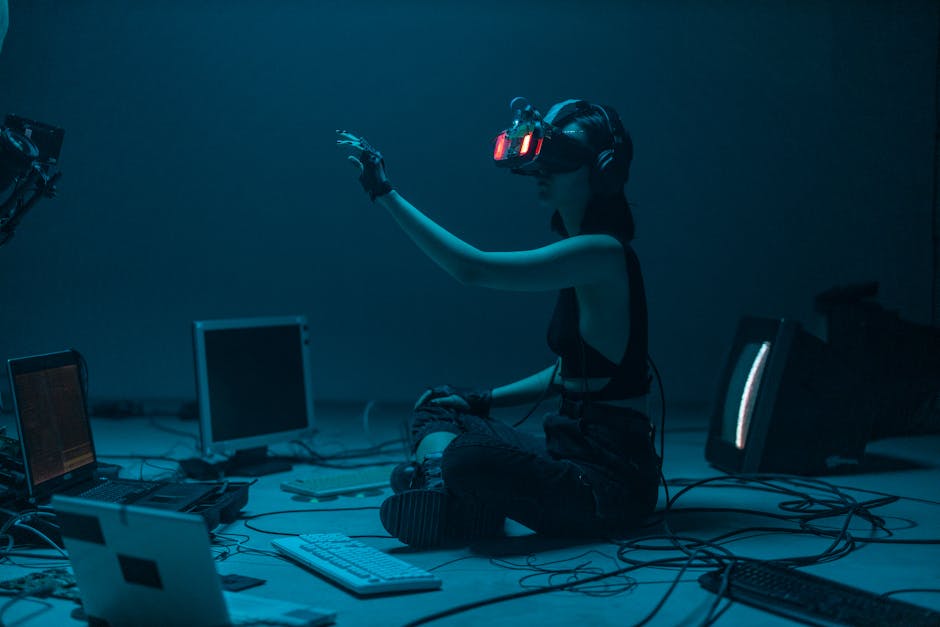The Gamification of Mental Health: Transforming Therapy Through Play
In today’s world, where mental health awareness is more pressing than ever, an unexpected ally has emerged in the fight against anxiety, depression, and stress: video games. The gamification of mental health is revolutionizing therapy practices, utilizing game mechanics and narratives to foster engagement and healing. This article dives deep into how various video games are crafted specifically for mental wellness, their scientific grounding, and insightful perspectives from mental health professionals who advocate for integrating gaming into therapy. If you’re curious about the evolution of gaming’s role in society and its potential as a therapeutic tool, buckle up; we’re about to explore a captivating intersection of entertainment and healing.
Understanding the Gamification of Mental Health

The term "gamification" refers to the integration of game-like mechanics into non-gaming contexts, encouraging engagement through rewards, challenges, and storytelling. In mental health therapy, gamification introduces innovative ways to engage patients and provide therapeutic benefits. By harnessing elements like narrative arcs, rewards, and interactive challenges, games can create immersive environments that resonate with players on deeper emotional levels.
The Science Behind Gaming and Mental Health

Research supports the efficacy of video games in improving mental well-being. A study published in the Journal of Medical Internet Research indicated that certain digital games could significantly reduce symptoms of depression and anxiety. These games often utilize cognitive-behavioral therapy (CBT) principles, providing players with skills to manage their emotions and navigate real-world challenges more effectively.
For instance, games like Journey and Celeste are not just entertaining but also provide valuable lessons in resilience and emotional regulation. Players navigate through challenges that mirror real-life struggles, ultimately leading to a sense of accomplishment and emotional growth.
Games Designed for Mental Wellness

Many developers have taken it upon themselves to create games catering specifically to mental health. Here are several notable examples that illustrate this trend:
-
Sea of Solitude: This adventure game takes players on a journey through a flooded city, personifying loneliness and mental health struggles through visually stunning gameplay. Players guide the protagonist, Kay, as she navigates her emotions, eventually seeking resolution by confronting her inner demons.
-
Hellblade: Senua’s Sacrifice: Crafted with the consultation of neuroscientists and people who experience psychosis, this game is an experience steeped in empathy. Players slip into the shoes of Senua, a warrior grappling with mental illness, all while facing daunting psychological challenges. The game successfully brings awareness to mental health while delivering an engaging narrative.
-
Fortunately, the Milk: With its whimsical story and absurdity, this game doesn’t directly address mental wellness but fosters joy and laughter, important elements of any mental health strategy. Humor and creativity can serve as therapeutic outlets that alleviate stress, proving that even light-hearted gameplay holds value.
-
MindLight: A groundbreaking game designed specifically to help children manage anxiety. By using neurofeedback techniques, players learn to calm their mind and engage their cognitive skills through gameplay, simultaneously enhancing emotional awareness and control.
Insights from Mental Health Professionals

Mental health professionals increasingly recognize the therapeutic potential of gaming. Dr. Brian McNaughton, a psychologist who has integrated gaming into his practice, notes the unique advantages games provide for fostering connection: “Games create a safe space for patients to express themselves, explore their emotions, and tackle issues without the pressure of a traditional therapy setting.”
Additionally, the non-linear format of gaming allows players to engage at their own pace, making them feel more in control during sensitive moments. Virtual Reality Therapy (VRT) is also becoming a pivotal component of this shift. By placing patients within immersive scene settings, they can confront phobias or rehearse social situations, thus desensitizing their fears through graduated exposure.
Incorporating games into therapeutic practices opens up dialogue about mental health, particularly among younger audiences who may feel more comfortable discussing their struggles within a gaming context.
Bridging To Real-World Applications

Moreover, many gamers are not only consumers but also advocates for mental health awareness. Platforms like Twitch allow players to discuss mental health issues openly during live streams, helping to demystify the stigma surrounding therapy. Initiatives like Mental Health Gaming effectively merge gameplay and real-life advocacy, encouraging individuals to share their experiences and seek help when necessary.
It’s also worth exploring related themes, such as how game mechanics influence real-world policies. For example, similar to how challenges in gaming entice players to act, the same mechanics can spur civic engagement and activism, essentially creating a culture of proactive citizens—players who are equipped to tackle societal issues. For further exploration of this concept, check out our article on game mechanics and civic engagement.
The Role of Community in Mental Health Gaming

Not to be overlooked, the multiplayer aspect of many current games fosters a sense of community that can be profoundly beneficial for mental health. Whether through co-op gameplay or fully immersive online worlds, players can bond over common interests and struggles, mitigating feelings of loneliness or isolation. The multiplayer dynamics encourage teamwork, communication, and emotional support, which are essential for mental wellness.
Assurance in a community can even help battle stigma. Many game developers encourage inclusivity and create platforms for marginalized voices, thereby establishing spaces where players can feel seen and validated.
Challenges and Considerations
While the potential of gaming for mental health is promising, it’s essential to recognize potential pitfalls. Video game addiction is a real concern, and balancing gaming with everyday responsibilities is crucial. Mental health professionals emphasize the need for moderation and critical engagement, ensuring that gameplay remains a beneficial tool rather than an escape.
Moreover, not all games are created equal when it comes to mental health benefits. Certain titles can inadvertently worsen symptoms depending on the individual's context, experience, or trigger. Thus, tailoring recommendations based on personal needs is vital for harnessing the best outcomes.
Next Steps for Gamers and Mental Health Advocates
If you're keen on exploring the therapeutic angles of gaming, start by actively engaging with mental health-focused titles. Take time to observe how different mechanics resonate with your emotions and personal journeys. It might be beneficial to share your insights with mental health professionals, contributing to a growing body of knowledge around gaming and well-being.
Mental health advocates can support this shift by promoting dialogue surrounding mental health games, leading discussions on streaming platforms, or curating resources that educate communities about the benefits and risks associated with gaming.
By working together, gamers and advocates can foster a culture that prioritizes both entertainment and well-being. Remember, the dialogue surrounding mental health is evolving, and every conversation matters.
Final Thoughts: An Inclusive Future for Gaming and Therapy
As the line between gaming and mental health blurs, we enter a future brimming with potential for innovation in therapeutic practices. By integrating gaming into therapy, we’re not just looking to enhance mental wellness; we’re redefining how we relate to ourselves and each other in the digital age.
As players, therapists, and advocates unite, the vision for a holistic approach to mental well-being becomes increasingly tangible. Let’s embrace the gamification of mental health as a pathway to healing, community, and resilience; after all, the games we play can pave the way toward brighter, healthier lives.


